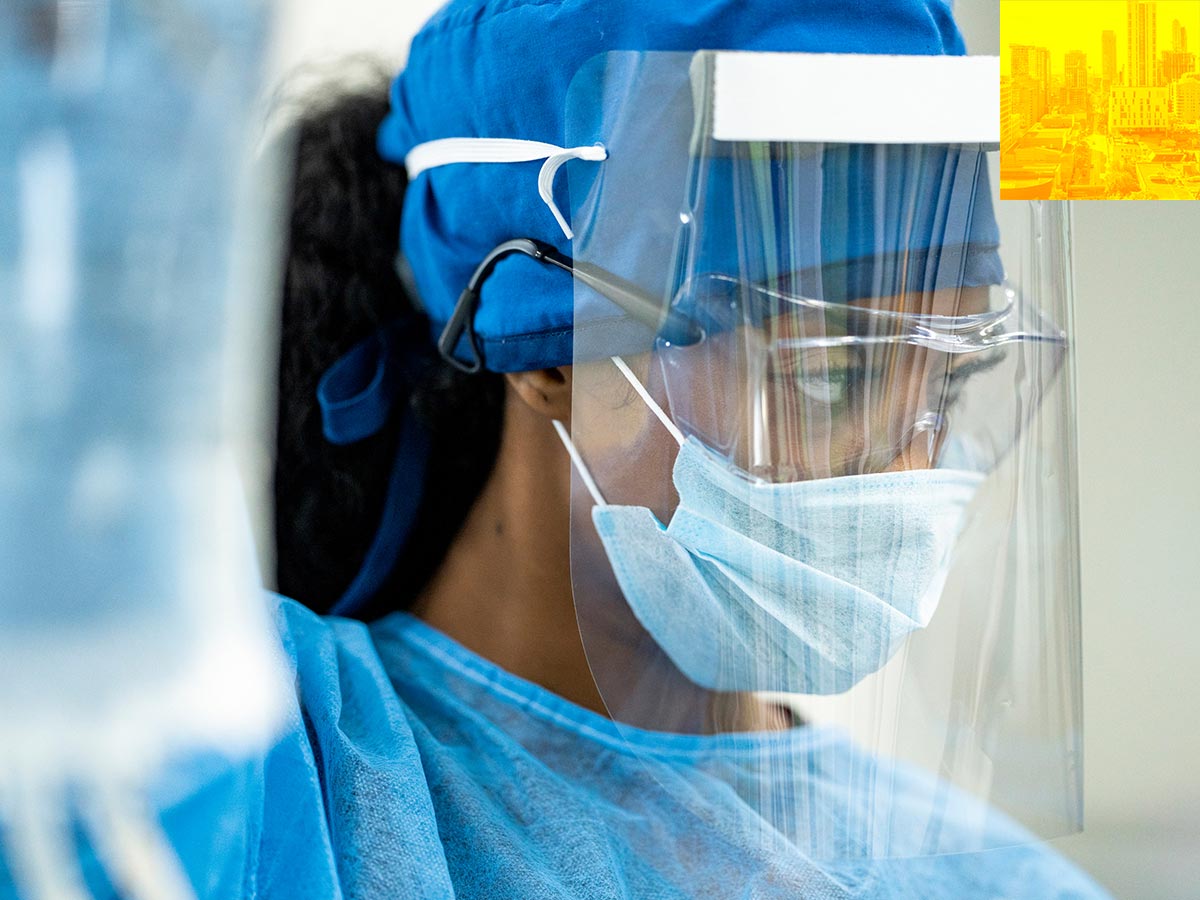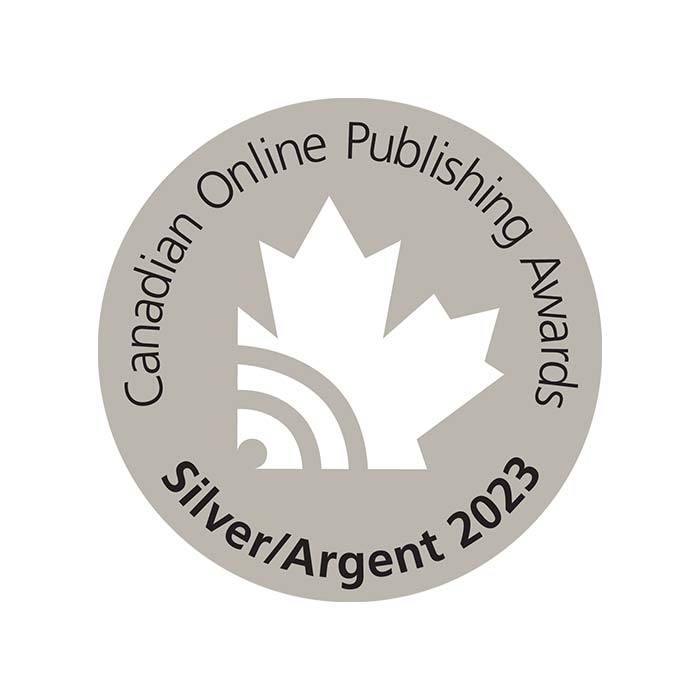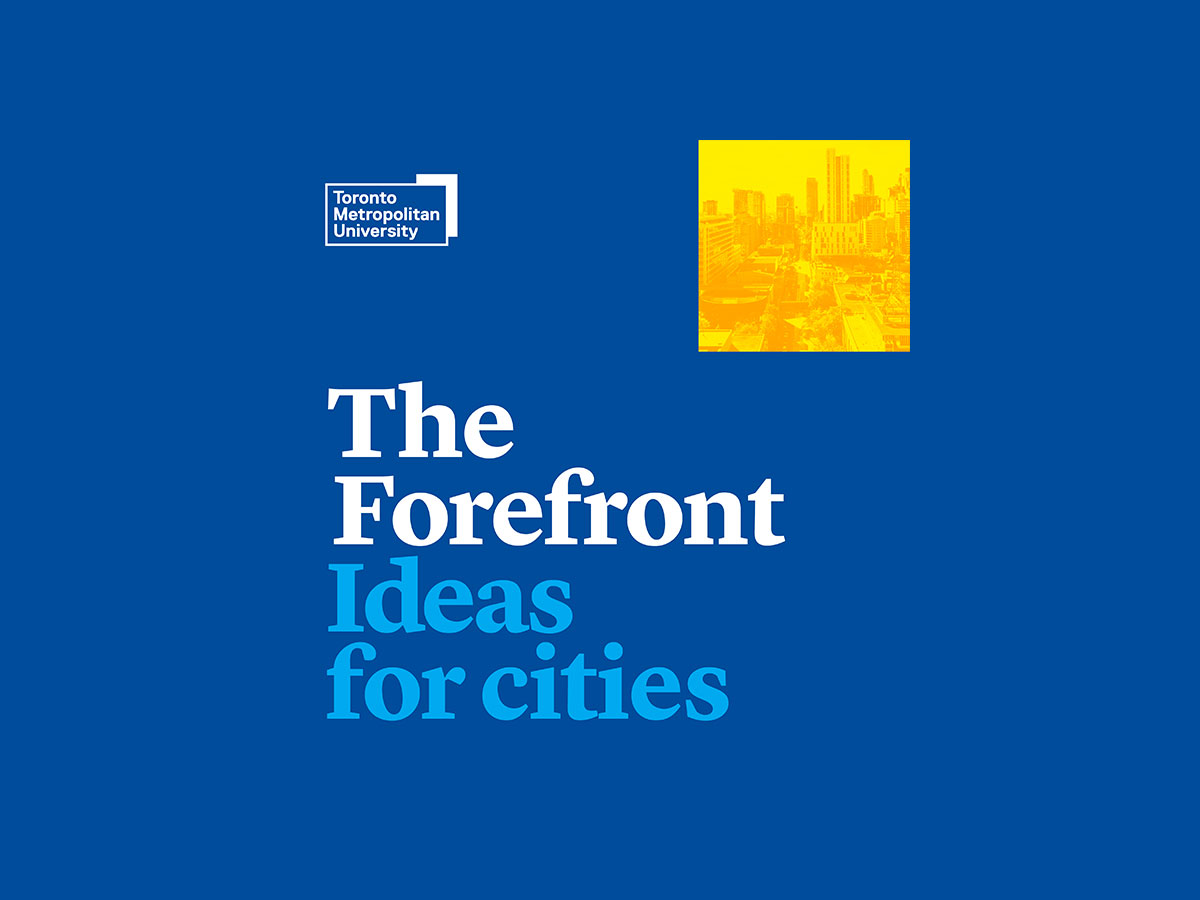Dispatched to the frontlines

Season 2, Episode 6
Description
In Ontario and across the country, hospitals are struggling with a nursing shortage. The issue has prompted the Daphne Cockwell School of Nursing to work with the provincial government to provide support to hospitals through a job placement program for students. In this episode, we chat with nursing graduate Dioneta Iseni about her experience participating in the placement program. Plus, we speak to Maher El-Masri, Director of the Daphne Cockwell School of Nursing, to learn more about how students are stepping up to fill this crucial gap in the healthcare system in the midst of a global pandemic.
Additional information:
Number of nursing students in placements during 2020/2021 academic year:
2948 placements
Amanda: This is The Forefront, a podcast that explores ideas for cities. I’m Amanda Cupido.
So here’s the problem: Nurses across Canada have been on the frontlines throughout the pandemic… but there just aren’t enough of them. Especially in Ontario. Some hospitals have had to close entire wings of their emergency departments because there aren’t enough nurses to attend to beds.
Throughout the pandemic, the university community —including students, staff, and alumni—they’ve all really stepped up. From donating PPE to supporting pop-up vaccination centres on campus—everyone’s come together in a really meaningful way.
But no one has stepped up the way the students at the Daphne Cockwell School of Nursing have.
Dioneta: I was excited to finally get to my final year and head on into the field itself. I thought it would be a smooth sailing year. I prepared for it.
Amanda: This is Dioneta Iseni. She recently graduated with her Bachelor of Science in Nursing. She knew she would have to do placements in hospitals throughout the last two years of her degree—but she had no idea how crucial the work she did during those placements would turn out to be.
Dioneta: It was around February, I can't remember what time, but we were told not to show up to school for two weeks. My schedule kind of went downhill from that. I was expecting to follow that schedule.
Amanda: Halfway through the second term of Dioneta’s third year, the COVID-19 pandemic hit, and all of her expectations went out the window.
Dioneta: I was placed at a resource center and we were expected to complete a certain amount of hours. So I didn't know what that would entail with COVID-19 at the time. So I didn't know if I was—if they would make exceptions or what was going on. I would say I was very confused as to what the next steps or what it would look like for my possible final year and what it would look like entering my field as well.
Amanda: The Ontario Ministry of Health recently announced $61 million in funding to recruit, train, and hire new nurses. But that takes time—which is why new nurses like Dioneta are so important now.
Maher: A nurse, to put it simply, is—I would say they're the backbone of the healthcare system.
Amanda: This is Maher El-Masri. He’s a professor and director at the Daphne Cockwell School of Nursing—a job that he took in August of 2020, just before the second wave of COVID-19 came to Canada.
Maher: Now from my perspective, as a nurse educator especially, the experience was really challenging. I've seen how the pandemic affected my fellow nurses who practice in the front lines. I actually have two daughters and one son who are also nurses. And I've seen how it affected them. And in the very early days of the pandemic, they would separate from their family, they would take extra, extra precautions to make sure that the family is safe. So they will come change their clothes in the garage, take a shower, not mingle, not mix with anybody. Things became better with the vaccination, but I could also see the stress initially, the anxiety about the unknown.
Amanda: As Maher watched his children struggle with the realities of the pandemic, he found himself in a complicated situation—how would he support his colleagues on the frontlines and keep his students safe without sacrificing the quality of their education?
Maher: So in the very early days of the pandemic, because we knew little about it, and because of the need to social distance, and to protect the students and to allow space to really take care of those who need the care best, students were asked to leave the clinical setting. But then when we started to reintegrate them into clinical practice, we had to deal with many, many restrictions and new guidelines that normally wouldn't even think about. So we had to space the students, instead of having groups of eight, sometimes we started to have groups of four.
Nurses and nursing students are normal people, they live with families, some of them have health problems. So that also created situations where we need to be careful to make sure that we don't put them in harm's way. So we had to work, like I said, very hard to create a delicate balance of ensuring that we continue to contribute and fulfill our responsibilities, our societal responsibilities, that is, at the same time, protecting the students and instructors.
Amanda: Not an easy problem to solve! But Maher and his staff at the School of Nursing knew that they could play a key role in supporting the city with the pandemic response, so they organized programs to help out however they could.
Maher: In the very early days of the pandemic, when we worked remotely, and the students were not actually in clinical practice, we donated or volunteered all our beds in our simulation lab, to local area healthcare settings, so that they can use them for the increased capacity, so we did that. Also, when the vaccinations started to take place, there was a need for opening of vaccination sites. And I was very excited to open a vaccination clinic at our university and the clinic was located in the building where our school is located. So that was an important role that our school and university played in that regard. Several of our staff and faculty as well as the students volunteered in in those clinics
Amanda: Most importantly, the School of Nursing was able to offer up the skills of their students to support the many overstretched nurses across the city.
Maher: With the increased demand that came with a pandemic, there was a dire need for extra nurses in several settings. So the government created an initiative called externship. And basically, it was built on the idea of recruiting nursing students, to work as externs under supervision of different hospitals. Many of our students have been participating in that program and also, through our regular coordination with our clinical partners. We placed the students in clinical placements that normally we wouldn't consider. So there was a need for nursing students to be placed in vaccination clinics in different areas and it was a win-win situation for us. Because of the restrictions that were imposed on us and our students, there weren't enough, if I may call, traditional clinical placement opportunities. So this allowed the students to complete the required clinical placement experiences, while assisting and supporting our clinical partners in answering the associated needs, in terms of vaccination.
Amanda: It was through this program that Dioneta found herself in a placement that would change her entire perspective on her career.
Dioneta: During my first semester, I was on the orthopaedic unit at St. Michael's, and then during my second semester, I was at Humber River Hospital in the ICU unit. During my first placement, it was back and forth with whether or not we were allowed to work with COVID-19 patients. And then I think a bit of the first semester, we ended up working with COVID-19 patients as students. And during my second semester, as well, especially on the intensive care unit, the majority of the patients did have COVID-19 so we were expected to work with them.
Amanda: Dioneta says there were many moments she felt scared, but luckily she had a strong community of nurses around her for support. She also says the experience has not only made her a better nurse, but also a more empathetic person. All in all -- she's eager to keep on this path.
Dioneta: In the field itself, as you do see such a wide range of patients—when you're kind of placed in a situation where you're eager to learn and pick up on what other nurses are doing and how they take care of their patients. You can't help but you know, add that to your own practice. When you're in the field, there are so many different things that you could possibly see or experience and all of these experiences are so different from one another. So I definitely think that there is always room for growth in a profession such as nursing.
Amanda: People will commonly call nurses nurturing or resourceful, but Maher says the main thing people don’t realize about nurses is their capacity for creativity.
Maher: So when you, as a nurse, enter a room with full protective gear, the patient doesn't really see you. Because you have the face shield, you have the mask, you have the gloves, so you pretty much all covered. So you walk into the room, if you're not careful, you're essentially a ghost. And I was very proud to see fellow nurses and doctors as well, walking in the rooms with pictures displayed on their uniform, or their, you know, the protective gowns that they have with their names displayed.
Amanda: Another story that he found touching came from the ICU. Nurses were dealing with a slew of patients who were in isolation and on ventilators because of COVID. They were missing the soft touch of loved ones, who were not allowed to be by their side. So the nurses came up with a creative alternative...
Maher: Nurses actually would fill a medical glove with water and then seal it so that it's soft to touch. And they will place the palm of the patient on that glove. So it's almost like touching hands. And it gives them that warm feeling of being cared for... There have been many really great examples of the role that nurses play above and beyond what a textbook or an expectation would show you. And that's the creativity I was talking about—many nurses do go above and beyond to make sure that their patients are very well taken care of.
Amanda: Despite the many challenges of this year, Maher believes that it’s prepared nursing students like Dioneta in a way that will boost the country’s healthcare system, which is a cornerstone for city building.
Maher: It's been a challenging year, but I dare to say, if we could survive this year, then we should survive anything after. And I listened to some, you know, comments and testimonies from some of our students who just recently graduated. And some of them will admit, they will say it's been challenging, it was not their ideal year, it’s not what they expected. But the fact that they were able to practice under such difficult circumstances actually prepared them well to be successful nurses. I have no doubt that the students who just recently graduated and those who will be graduating in the years to come will be very well-prepared for anything that comes their way.
Amanda: Before we go, here’s a final note from Maher on why he loves working at the Daphne Cockwell School of Nursing.
Maher: So one thing to know about Toronto Metropolitan University is that it’s probably, if not for sure, the largest undergraduate nursing program in Ontario, and the fact that we are located in the heart of the city of Toronto, we are actually making very significant contributions.
We believe that we graduate the best nurses that can help us continue our mission in terms of nursing care and the healthcare system as a whole. We're a larger school, there’s no doubt we're a very large school. And every year we graduate, close to 600 or 650 students between the collaborative program and the post diploma program. In addition to our graduate program, where we prepare advanced practice nurses either in leadership or nurse practitioners, but also we just recently started the Ph. D. program in urban health. So we position our programs to answer the needs of our community. And that's a unique advantage to Toronto Metropolitan University School of Nursing.
Amanda: This podcast was created for alumni and friends by University Advancement, in partnership with City Building Toronto Metropolitan University. Special thanks to our guests on today’s episode, Dioneta Iseni and Maher El-Masri. This podcast was created by me, Amanda Cupido, and Emily Morantz. Both of us are proud graduates of the university!
To learn more about the Daphne Cockwell School of Nursing, and hear more episodes of this podcast and others, visit ryerson.ca/alumni/podcasts.

The Forefront is a proud recipient of the Canadian Online Publishing Awards for Best Podcast in 2023 (silver).

The Forefront is a proud recipient of the Canadian Council for the Advancement of Education (CCAE) Prix d’Excellence Award.
